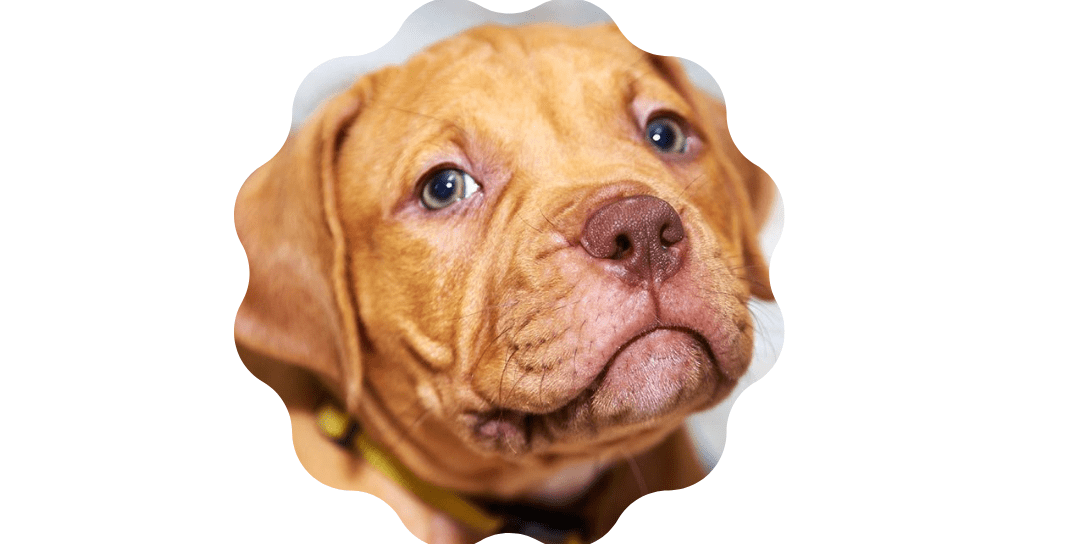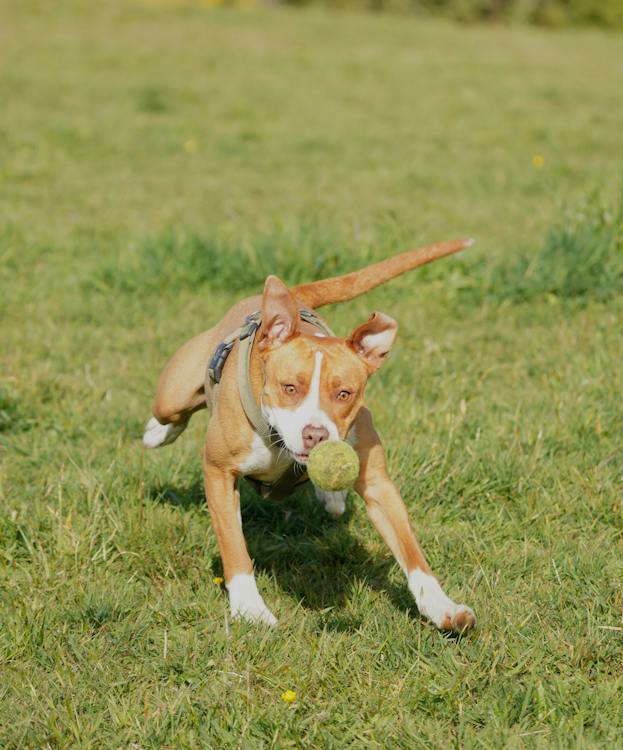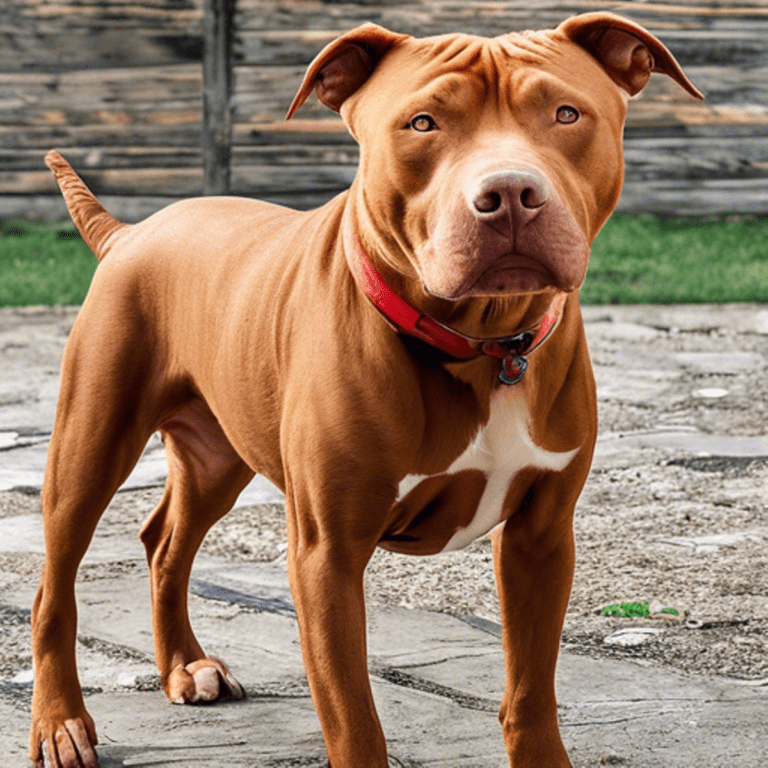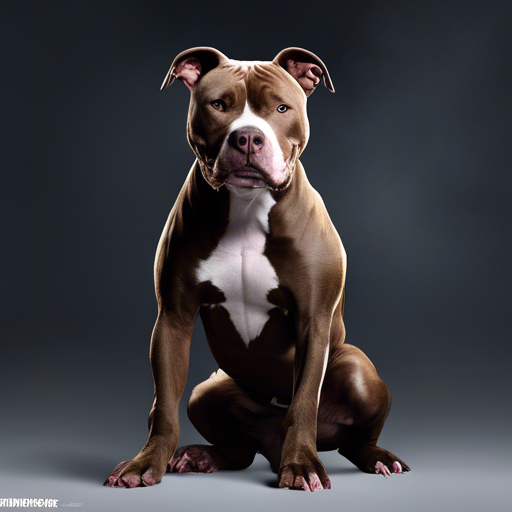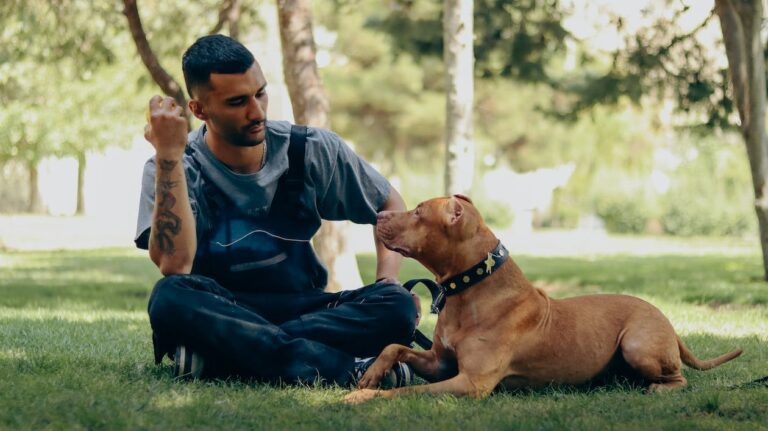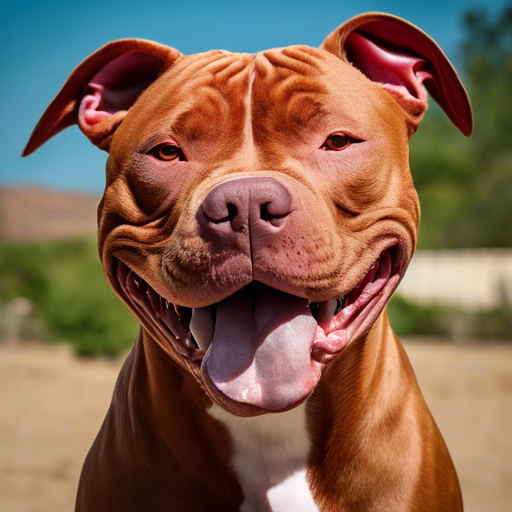8 Science-Based Benefits of Having a Red Nose Pitbull Dog
Introduction to Red Nose Pitbull Dogs
Red Nose Pitbull dogs are renowned for their loyalty, strength, and affectionate nature. Originating from the United States, these dogs have gained popularity for their distinct reddish nose and muscular build. Beyond their physical appearance, scientific research suggests numerous benefits to having a Red Nose Pitbull as a companion.
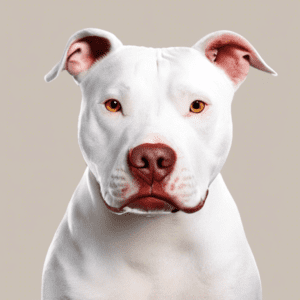
1. Enhanced Physical Health benefits
Increased Exercise
Owning a Red Nose Pitbull encourages physical activity. Regular walks, runs, and playtime are essential for the well-being of both the dog and its owner. Studies show that dog owners are more likely to meet daily exercise recommendations, resulting in improved cardiovascular health and reduced risk of obesity.
Reduced Stress
Interacting with a Red Nose Pitbull can significantly reduce stress levels. Petting a dog releases oxytocin, a hormone associated with bonding and relaxation. Research indicates that spending time with a dog can lower cortisol levels, the primary stress hormone, leading to a calmer state of mind.
2. Mental Health Benefits
Decreased Anxiety
Red Nose Pitbulls provide emotional support, particularly for individuals dealing with anxiety disorders. The presence of a dog can alleviate symptoms of anxiety, such as restlessness and tension. Therapy dogs, including Pitbulls, are increasingly used to assist individuals in managing anxiety and panic attacks.
Improved Mood
The companionship of a Red Nose Pitbull has been linked to enhanced mood and happiness. Engaging in activities with a dog, such as playing fetch or cuddling, triggers the release of dopamine and serotonin, neurotransmitters associated with pleasure and well-being. As a result, dog owners often report feeling happier and more content.
3. Social Interaction benefits
Increased Socialization
Owning a Red Nose Pitbull can foster social interaction. Taking the dog for walks or visiting dog parks provides opportunities to meet other pet owners and engage in conversations. Dogs serve as social catalysts, facilitating connections and reducing feelings of loneliness or isolation.
Emotional Support
Red Nose Pitbulls offer unconditional love and companionship, serving as emotional support animals for their owners. Research suggests that the presence of a dog can buffer against feelings of loneliness and provide a sense of purpose and belonging.
4. Security and Protection benefits
Natural Guarding Instincts
Red Nose Pitbulls possess natural guarding instincts, making them excellent watchdogs. Their alertness and protective nature contribute to home security, deterring potential intruders and providing peace of mind to homeowners.
Alertness
Pitbulls are known for their keen sense of awareness. Red Nose Pitbulls exhibit heightened alertness, making them vigilant companions. Their ability to detect changes in their surroundings enhances household security and serves as a deterrent against threats.
5. Allergy Resistance
Contrary to popular belief, owning a Red Nose Pitbull may reduce the risk of allergies in children. Studies suggest that exposure to pet dander and allergens during early childhood can strengthen the immune system and decrease the likelihood of developing allergies and asthma later in life.
6. Therapy Assistance
Red Nose Pitbulls are increasingly utilized as therapy dogs due to their gentle demeanor and empathetic nature. These dogs provide comfort and companionship to individuals in hospitals, nursing homes, and rehabilitation centers, promoting emotional well-being and recovery.
7. Companion for Children
Red Nose Pitbulls make excellent companions for children. Their affectionate and playful disposition fosters strong bonds with young family members, teaching them responsibility and empathy. Research shows that children who grow up with pets develop enhanced social skills and empathy.
8. Lifelong Friendship
Owning a Red Nose Pitbull often results in a lifelong friendship. These dogs are known for their unwavering loyalty and devotion to their owners. The bond formed between a Pitbull and its owner is characterized by mutual trust, love, and companionship, enriching both lives.
Conclusion
The science-based benefits of having a Red Nose Pitbull dog extend beyond mere companionship. From improved physical and mental health to enhanced social interaction and security, these dogs offer a myriad of advantages to their owners. With proper care and training, Red Nose Pitbulls can become cherished members of the family, enriching lives with their love and loyalty.
Are Red Nose Pitbulls good with children?
Red Nose Pitbulls, like any other breed, can be good with children if they are properly trained, socialized, and raised in a loving environment. These dogs are known for their loyalty, affection, and gentle nature towards their families. However, it’s essential to note that individual temperament can vary, so early socialization and training are crucial to ensure they interact well with children.
When considering any dog breed around children, supervision is always necessary, especially with large and powerful breeds like Pitbulls. Additionally, teaching children how to interact respectfully with dogs and providing boundaries for both the children and the dog can help prevent any potential conflicts or accidents.
with responsible ownership, Red Nose Pitbulls can indeed make loving and protective companions for families with children.
Do Red Nose Pitbulls require a lot of exercise?
Yes, Red Nose Pitbulls typically require a considerable amount of exercise. They are an active and energetic breed that benefits from daily physical activity to maintain their health and prevent boredom. Regular exercise helps to channel their energy positively and can also contribute to their mental stimulation.
Ideally, Red Nose Pitbulls should engage in activities such as long walks, runs, or hikes to fulfill their exercise needs. Additionally, interactive play sessions, such as fetch or agility training, can help keep them mentally stimulated and physically fit.
Failure to provide adequate exercise for a Red Nose Pitbull can lead to behavioral issues, such as excessive chewing, digging, or restlessness. Therefore, it’s essential for owners to incorporate regular exercise into their daily routine to ensure the well-being of their Pitbull companion.
Are Red Nose Pitbulls aggressive?
The temperament of Red Nose Pitbulls, like any other dog breed, can vary based on genetics, upbringing, and individual personality. While some may exhibit aggression under certain circumstances, it’s essential to understand that aggression in dogs is often a result of factors such as improper socialization, mistreatment, or irresponsible breeding rather than an inherent trait of the breed itself.
When properly trained, socialized, and raised in a loving environment, Red Nose Pitbulls can be affectionate, loyal, and gentle companions. They are known for their strong bond with their families and can be excellent with children and other pets.
However, it’s crucial for owners to provide consistent training, positive reinforcement, and proper socialization from an early age to ensure that their Red Nose Pitbull develops into a well-adjusted and friendly dog. Additionally, responsible ownership, including providing adequate exercise, mental stimulation, and supervision when interacting with other animals or unfamiliar situations, is essential in preventing any potential aggression issues.
Do Red Nose Pitbulls have specific health concerns?
Yes, like many dog breeds, Red Nose Pitbulls may be predisposed to certain health concerns. Some of the potential health issues that are commonly associated with Pitbulls, including those with red noses, include:
Hip dysplasia: A hereditary condition where the hip joint doesn’t develop properly, leading to discomfort, pain, and mobility issues.
Allergies: Pitbulls can be prone to skin allergies, which may manifest as itching, redness, or skin infections.
Heart disease: Certain heart conditions, such as mitral valve disease, may affect Pitbulls.
Skin problems: Pitbulls may be susceptible to various skin conditions, including mange, dermatitis, and hot spots.
Joint problems: Apart from hip dysplasia, Pitbulls may also be prone to other joint issues like elbow dysplasia and arthritis.
Thyroid issues: Hypothyroidism, a condition where the thyroid gland doesn’t produce enough hormones, can occur in Pitbulls.
Regular veterinary check-ups, a balanced diet, proper exercise, and maintaining a healthy weight can help mitigate the risk of these health concerns. Responsible breeding practices that prioritize health screenings and genetic testing can also help reduce the incidence of hereditary conditions in Red Nose Pitbulls.
Can Red Nose Pitbulls be trained easily?
Red Nose Pitbulls are generally intelligent and eager to please, which can make them trainable with consistency, patience, and positive reinforcement methods. Like any breed, individual temperament can vary, but many Red Nose Pitbulls respond well to training when it’s approached with the right techniques.
Early socialization and obedience training are essential for Red Nose Pitbulls to ensure they develop into well-behaved and well-adjusted companions. Positive reinforcement, such as treats, praise, and rewards, can be highly effective in motivating them to learn commands and behaviors.
Consistency is key when training Red Nose Pitbulls, as they thrive on routine and clear expectations. Establishing firm boundaries and rules from the beginning can help prevent any potential behavioral issues as they mature.
It’s also important to remember that training is an ongoing process throughout the dog’s life. With dedication, patience, and proper training methods, Red Nose Pitbulls can indeed be trained to be obedient, well-mannered, and loyal companions.
